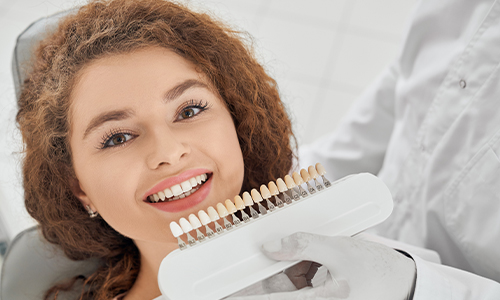At What Age Can You Get Your Teeth Professionally Whitened?
A bright smile is more likely in young kids with milk teeth. However, as they grow older, their smile loses its luster. The majority of their milk teeth are replaced by permanent adult teeth, which are usually white or slightly yellowish in color. In general, this is not a dental issue, but a problem may arise if the child’s teeth appear excessively stained or discolored for a variety of reasons. If your child has the same concern, you may be wondering whether professional teeth whitening is the best option for your child. Continue reading to learn what age can you get your teeth professionally whitened, as well as what age you can start having teeth whitening treatment for your kids, and the safety of opting for this dental service.
Professional Teeth Whitening Treatment
Adult teeth will never be as white as baby teeth. However, there is a chance that the child has unusually dark or stained teeth. Professional teeth whitening treatment performed by dental experts can help in this situation!
Teeth whitening is one of the dental services that can be used to achieve the desired shade of teeth. With advancements in dental technology over the years, this has become a popular treatment option for dark-stained/discolored teeth and has become more affordable.
To whiten the teeth, the dentist applies products with active ingredients such as hydrogen peroxide or hydrogen carbamide to the patient’s teeth. These are the bleaching agents that can penetrate the inner surfaces of the teeth and react with stains to oxidize them. For younger patients, hydrogen peroxide is usually preferred to whiten the teeth. There are various ways to whiten teeth such as the use of teeth whitening toothpaste, strips, gels, and trays, and in-chair dental bleaching treatment.
Unfortunately, not everyone can have their teeth whitened; an individual must be of a certain age to receive teeth whitening treatment.
How Old Do You Have to Be to Get Your Teeth Professionally Whitened?
Teeth whitening is not appropriate for children who have baby teeth. The child must wait for the eruption of adult permanent teeth, which usually occurs between the ages of 12 and 13. However, that is still not the appropriate age. Following the eruption of the last permanent teeth and the establishment of full adult teeth, another two years are required for enamel calcification. As a result, professional teeth whitening before the ages of 15-16 can cause tooth damage. So, based on this calculation, the minimum age is around 16 years old. However, our dentists still do not recommend that the child have his or her teeth whitened because it may have some side effects and can negatively impact the child’s ideal tooth growth. This means that a person should consider teeth whitening after they have passed their adolescent years.
What Is the Legal Age Limit For Teeth Whitening?
Everyone should be aware that teeth whitening products containing more than 0.1 percent hydrogen peroxide, a dental bleaching agent, should not be used by anyone under the age of 18. This means that the legal age for considering teeth whitening is 18 years or older.
What Are the Risks Involved in Whitening Teeth Before the Right Age?
Bleaching agents are required for teeth whitening. These are abrasive and will most likely cause enamel wear over time. As a result, having your teeth whitened frequently can make them sensitive and more prone to decay.
Some children and parents may feel compelled to use natural or chemical teeth whitening products on their children’s teeth in order to achieve a bright smile. They are only causing damage to their teeth’s enamel by doing so. The fact is that milk teeth contain fewer minerals (such as fluoride, which strengthens tooth enamel) than adult teeth, making them more prone to demineralization; supporting the claim that younger children are more likely to have damaged enamel after using bleaching agents.
How Eligibility for Professional Teeth Whitening Is Determined?
The following factors may be considered to confirm a client’s candidacy for the in-chair dental bleaching procedure:
- Oral and General Health Status- During the initial consultation with the dentist for professional teeth whitening, clients must inform the dentist of any medical concerns they may have. Before undergoing professional teeth whitening, patients with crooked teeth, cavities, gum disease, or exposed tooth nerves must treat these conditions.
- Tooth Sensitivity- Professional teeth whitening is frequently associated with mildly painful tooth sensitivity during the first 24 hours of treatment. Patients must refrain from consuming tooth-staining drinks or foods during this time period. Teeth discoloration is more likely after teeth bleaching.
- Touch-up Appointments are Required- If the patient consumes foods and beverages that discolor the teeth, yellowing of the teeth is inevitable over time. The lighter teeth shade achieved by professional teeth whitening can last anywhere from 6 to 12 months, depending on the patient’s oral hygiene habits and food/drink preferences. As a result, touch-ups can assist in restoring the lost luster of the teeth when they appear dull.
Everyone wants a pearly white smile and if you want to know more about what age can you get your teeth professionally whitened and minimum age for teeth whitening, consult with the professional teeth whitening experts at First Point Dental.

